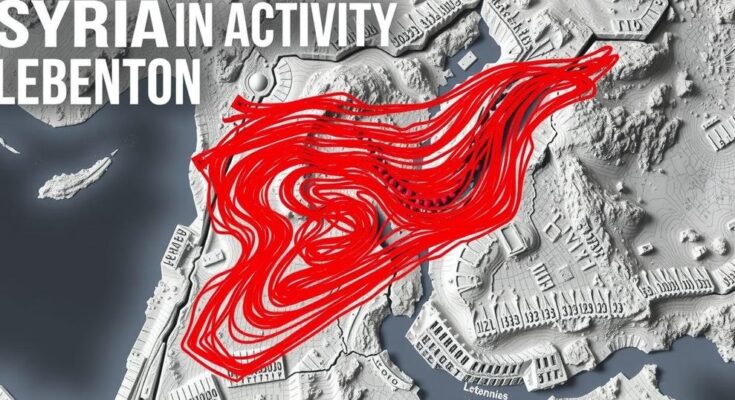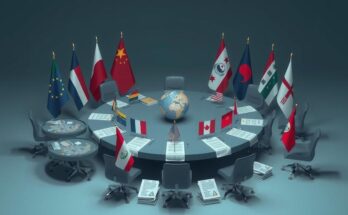The fall of Assad’s regime has revitalized the Sunni community in Lebanon, leading to demands for amnesty for imprisoned Islamist members. Tensions with Hizbullah are rising as the Sunni factions seek to reclaim power over a weakened Shiite political landscape. While the possibility of amnesty is constrained by the current political environment, the relationship between Lebanon and Syria remains pivotal to understanding these developments.
In the wake of the collapse of Bashar Assad’s regime in Syria, the landscape of regional Sunni politics is shifting dramatically, particularly in Lebanon. The initial euphoria in Sunni-majority regions like Tripoli and Sidon quickly transformed into a deeply rooted political struggle as local Islamist factions, notably Jamaah Islamiya, began targeting the Lebanese state for the release of Sunni prisoners. Sheikh Ahmad Shemali led a robust protest demanding amnesty for all imprisoned Islamists, signaling a revival of Sunni activism in Lebanon, fueled by victories in Syria against the Shiite-led Hizbullah.
The Sunni community’s resurgence aims to reclaim dominance over a weakened Hizbullah, which has suffered setbacks in both Syria and its engagement with Israel. However, the prospects of granting amnesty remain bleak, given that such a decision lies within the purview of Nabih Berri, the Shiite speaker of the Lebanese parliament and an ally of Hizbullah. The worsening inter-sect tensions illustrate the broader turmoil afflicting the Lebanese political landscape.
The Shiite community faces difficulties as Hizbullah’s influence diminishes following military setbacks. Recent meetings, such as the one between Lebanese Armed Forces Commander General Joseph Aoun and Hizbullah’s Wafiq Safa, underscore the precarious balance of power as Aoun, who is seen as a potential presidential candidate, asserts the Army’s commitment to enforcing ceasefire agreements and disarming Hezbollah factions.
The Christian community remains embattled, also searching for a unifying presidential candidate amid internal divisions. The Free Patriotic Movement, led by Jibran Bassil, faces opposition from prominent Christian leaders who question its allegiance to Hizbullah. Despite their collective efforts, the lack of a dominant Christian faction renders a unified candidate unlikely.
Compounding these tensions is the emergence of a Sunni regime in Syria, which raises concerns among Lebanese politicians regarding potential instability and irredentism within Sunni regions of Lebanon. The collective memory of previous conflicts, such as the ISS siege in Arsal, continues to loom large, foreshadowing possible unrest.
The dynamics in Lebanon are closely tied to developments in Syria, as exemplified by Ahmad al Sharaa’s supportive statements regarding General Aoun’s presidency. The Syrian regime, currently focused on consolidation and stabilization, appears disinclined to instigate subversive actions against Lebanon, suggesting that while instability may persist, the immediate threat of intervention remains low.
The article delves into the aftermath of the Syrian civil war, particularly following the regime’s collapse, and its considerable implications for Lebanon. It highlights the political awakening of the Sunni community in Lebanon, which reacts to both regional developments and internal grievances. The Sunni factions’ demands for prisoner releases and amnesty illustrate the shifting power dynamics as they seek to counterbalance the previously dominant Shiite Hizbullah, whose position has been weakened post-Assad. The context of ongoing sectarian tensions and the struggle for political hegemony illustrates the complex interplay of Lebanese and Syrian politics.
In summary, the changing political landscape following Assad’s regime collapse signals a profound awakening among the Sunni factions in Lebanon, pushing them towards greater activism against the Shiite Hizbullah’s dwindling hegemony. However, obstacles remain, particularly regarding potential amnesty measures, which are unlikely under the current Shiite political leadership. As the Sunni community navigates this volatile environment, the interplay between Lebanese internal politics and regional developments in Syria will continue to shape the future of Lebanon’s political dynamics.
Original Source: www.jewishpress.com




